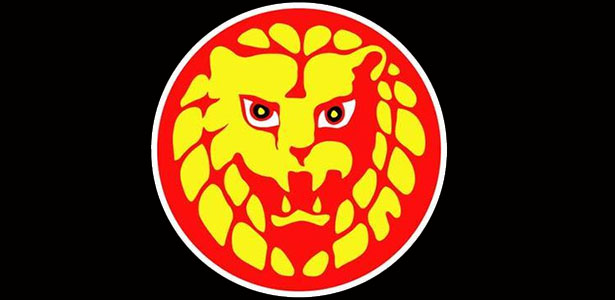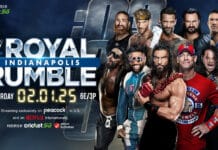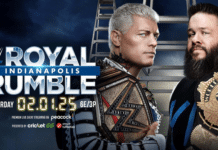
A major shake up within the structure of New Japan Pro Wrestling will take place later this month, as Harold Meji, president of the organization, will step down in just a few weeks, with his replacement as Takami Ohbari, the current president of the NJPW America project. Meji, who took the role with the Japanese league in May of 2018, was a former vice president at Coca Cola Japan before he ran the Tomy Toy company. Meji has Dutch heritage, but lived in Japan since his youth and despite technically being a foreigner, was able to market correctly to the Japanese demographic. Not just a business suit, he was a longtime wrestling fan and was also familiar with the history of New Japan.
So, why the change now?
As with almost everything, it’s really a matter of perspective. According to The Wrestling Observer’s Dave Meltzer, Meji was brought into the promotion to increase its revenue, which he was known for during his time at Tomy Tony, as well as to continue to expand into the North American market. On one hand, he only had roughly a year and half to make progress in the role as president of the group, most of that during a pandemic that shut down shows completely. On the other hand, the time that Meji had to work under the normal schedule as president had some critical decisions made, which might’ve led to the decision for him to resign for the position.
On the plus side, the expansion of New Japan merchandise, including ease of distribution outside of Japan, is probably Meji’s biggest accomplishment for the wrestling group as far as a pure business move. The access to New Japan World, the company’s streaming service, makes it much easier for foreign fans to consistently follow the product, and allowing for easier accessibility to merchandise orders for that demographic opens up a new revenue stream for New Japan. For years, the process to order authentic Japanese merchandise directly was an exhausting process, even with the use of the technology on the internet. The hoops to jump through with using translate pages to navigate the products, setting up the service to convert currency, and then the potential for extremely high shipping prices from the other side of the globe made it almost too much of a hassle for even the most diehard fans. The other option was the secondary market where a buyer would still incur a mark up price because of the lack of availability of the product in North America and of course at least a portion of the previously mentioned import costs. Through the NJPW America subsidiary and the LA dojo, the company can stock and distribute authentic New Japan merchandise to the North American fans base on a more regular basis. Even on a smaller scale, this allows for a revenue stream within the United States that wouldn’t exist otherwise.
Speaking of the American market, just as important to merchandise revenue, was the brand awareness that was created through the deal that saw Hot Topic stock New Japan t-shirts in its retail stores. Granted, the nature of the Japanese style is more of a niche as far as an American audience since its such a contrast from most of the pro wrestling the general public is exposed to on television, but gaining ground within a niche still makes for a profitable venture, which is the most important point of business. As far as the actual products offered to fans, more diversity for Japanese audiences helped cash-in on the company’s resurgence in popularity the past several years. Aside from souvenir stand staples like t-shirts and programs, there was the addition of key chains, plush toys, action figures, and more added to shelves. Maximizing potential profitability from the audience is key as well, and if New Japan truly wants to establish itself as a more global brand then revenue sources beyond just the live gate and NJPW World are important to the goal.
While New Japan diversified its product offerings, Meji might’ve had a few blunders that changed the course of the organization. Obviously, he wasn’t the only one involved in negotiations, but the mass exodus that eventually formed All Elite Wrestling happened under his watch. As popular as the Young Bucks were in Japan and continue to be in America, the argument could be made that the departure of Kenny Omega was a major blow to the momentum of NJPW. Omega, who had an incredible string of matches over a 3-4 year span under the New Japan banner, was the most popular foreigner on the roster, as well as one of the biggest overall stars. His electric series of matches with Kazuchika Okada added to the buzz that The Bullet Club brought to the table, and the anticipation of an eventual Okada rematch kept a spotlight on the organization.
After the success of the All In pay-per-view, a show that ultimately was the predecessor of AEW as a whole, The Elite stable of The Bucks, Omega, Cody, and Adam Page agreed to stick together with the next chapter of their respective careers. Matt and Nick Jackson used social media to make themselves much bigger stars, and their last stint with Ring Of Honor provided an American platform for them to enhance their personas. Add to that situation, Cody’s rocky exit from the WWE after he was extremely underutilized and had something to prove outside of the sports entertainment empire, and it was a narrative that the audience could rally around. In 2017, the ROH/NJPW working agreement that was formed a few years earlier, was a winning scenario for everyone involved, as ROH had the most buzz and biggest crowds it had in years, and through that process, it indirectly created more of an American presence for New Japan.
An example of this was a show I was actually in attendance for as a part of the “Global Wars Tour,” a four-night series of events that drew sellout crowds in Buffalo, Pittsburgh, Columbus, and Chicago with the inclusion of some of the New Japan stars. It was quite the visual when I walked into Stage AE, one of the well-known concert halls in Pittsburgh, and there were 1,200 fans jammed into the building. The chance to see The Bucks, Cody, Kenny, Suzuki etc. all on the same show in America was a very rare opportunity, and the attendance reflected that. The Elite stable had a platform in America, ROH did great business, and there was a considerable level of brand awareness for New Japan in a foreign market so everyone benefited from that.
Jump to late-2018, Tony Khan was impressed with the success of All In, which became the highest-grossing non-WWE event in the US since the days of WCW, and he decided he would fund the launch of an alternative wrestling company. How important that financing is for a project to get off the ground is another discussion for another time, but the point is The Elite was the hottest act in wrestling on the heels of the successful broadcast, giving them the chance to negotiate with several promotions ahead of 2019. Ironically, there reportedly was a WWE offer on the table for the entire five member stable, with the rumor mill suggesting that there was a pitch for a Bullet Club style invasion at Wrestlemania that year. Ultimately, there was a pass on the big money deal, which I’m guessing was because of how leery Cody would’ve been after how he was misused not too long before, and the reality that even with an opt-out clause, once a deal was inked, the group would be at the mercy of WWE booking for at least a period of time.
The Sinclair-owned ROH had the chance to match Khan’s offer, but decided not to pony up the cash, a very odd decision, considering how successful the stars had been for them and the fact that they did eventually offer lucrative exclusive contract to specific performers after AEW was formed. I’ve discussed it in the past, but Sinclair Broadcasting is in the television business, not the wrestling business. They bought Ring Of Honor in 2011 because it was a relatively cheap way to produce original programming on its stations so they could garnered more commercial revenue as compared to re-runs of other network shows. Make no mistake about it, Sinclair is worth a few hundred million dollars and could’ve afforded to re-sign The Elite, and the concept of AEW wouldn’t have been a possibility. The domino effect of how the existence of AEW impacted New Japan could be one of the reasons Meji is set to set down soon.
Gedo, longtime veteran, was installed as booker of NJPW after it was purchased by Bushiroad in 2012. Just a few years earlier, the storied league was on the brink of collapse after Antonio Inoki’s failed MMA experiment of the early-2000s. Gedo infused foreigners into the fold with the original Bullet Club, which sparked the promotion and brought back a spotlight for stellar native performers to soar in popularity. The Bullet Club, a spinoff of the New World World, which was ironically an takeoff of the UFWi/New Japan angle in the 90s, became the most popular stable in the world. The logo, music, and concept of foreigners storming into the company to challenge the native stars brought a buzz with it. Once that spotlight was there, Okada, Tanahashi, and others reintroduced many fans to the New Japan genre, as it was once thought the best of the league was only in the past.
As Finn Balor, AJ Styles, and others were eventually signed away by WWE, Gedo brilliantly replenished The Bullet Club with the right performers. Make no mistake, it wasn’t as simple as just plugging another non-Japanese into the faction, Gedo had to make the right choices at the right time. Eventually, Kenny Omega was put into the leader role of Bullet club, with The Bucks as longtime members and the addition of Cody. That gaijin cast with some many top notch athletes like Okada, Suzuki, etc. made for some major shows that fans across the world woke up earlier for to watch live with the streaming service.
With AEW on the horizon in early-2019, The Elite were at a crossroads with the New Japan office. The Americans, as mentioned, opted not to re-sign with ROH because of the Tony Khan offer for a new organization. New Japan still had the previously mentioned working agreement with ROH, something that is in doubt currently because of the pandemic. New Japan remained strictly loyal to ROH, and since AEW would be competing with ROH on some levels in the US, the Japanese office wouldn’t consider a potential working agreement with AEW after its official launch in May of last year. When the office wouldn’t consider the possibility of working with AEW, there wasn’t much of an option for the Elite stable, as all five members finished up with the Japanese promotion at Wrestle Kingdom last year, including Kenny Omega, who dropped the IWGP title to Tanahashi in the main event at the Tokyo Dome.
Since that time, both Chris Jericho and Jon Moxley have worked for New Japan while under contract to Tony Khan. Basically, there were big enough stars that NJPW didn’t want to turn down the chance to bring them to Japan, even with any of the potential hostility from the Elite exit. Reportedly, NJPW has now offered longer contracts and that don’t allow key deals to expire all at the same time, which for whatever reason, was standard procedure in the past. Maybe it was to provide fora completely fresh start if necessary, but the much bigger downside if that there’s a risk of lack of depth on the roster if several stars decide not to sign new contracts.
The Young Bucks were popular and stables of the New Japan scene, but the arguement could be made that a Jr. heavyweight tag team might be expendable if absolutely necessary. Despite Cody’s WWE fame and family history, he didn’t really work Japan long enough for his exit to be a major shift in the status of the company. Kenny Omega was the wild card of the situation, as the office was clearly building around him for an extended run in the future. Sure, Okada is considered the top guy to move the company forward within the next decade, but Omega was also a very important piece of the puzzle, particularly as the organization wanted to run shows in North America. Harold Meji wasn’t the only one in the negotiations for NJPW, but the bottom line is, he couldn’t sign one of the company’s most important stars to some type of new deal to keep him on the roster. Omega went from the IWGP champion to leaving the company in the span of a night.
Still, I’m not sure the move to Ohbari means all that much in the grand scheme of things, unless Meji’s tenure wasn’t as smooth as the office wanted it to be. I found it odd that Meji released his own book in Japan late last year and actually has a fan club as well, despite not directly being a public figure. Being a fan of professional wrestling, perhaps Meji was trying to get some of the spotlight for himself? The much less sizzling possibility is that without a full schedule most of the year, maybe the company simply had to cut the budget? Meltzer reported that Harold Meji signed a very lucrative deal to takeover as president so it might be more of a fincial move than anything else, which would make sense. Obviously, we saw WWE cut dozens of workers from its payroll earlier this year.
In my opinion, the sum total of Meji’s involvement is still a good result for the company because between the merchandise and the streaming service, the company is more accessible on a global level. That being said, I’m still not sold on the concept of an American spinoff being successful on a regular basis. The LA dojo as a training center could be a valuable tool for the development of talent, as well as the NJPW Strong shows as content for the streaming site. However, when the company ran small venues in the United States last year during short tours, it wasn’t anything that actually make an impact in the American market as far as a full-time expansion. A niche product can still be profitable as long as its handled properly. The Japanese style isn’t going to target the causal fan in the United States so it makes more sense to run a few “special events” in America each year to maximize attendance in venues that can actually yield a profit for the company.
Going forward, specifically after the pandemic is over, the big question for Ohbari in the lead administrative role is the decision about what NJPW’s aspirations are in the United States. The small scale of the LA dojo might logically be the biggest option they have as far as anything on a regular basis. With the travel from Japan, it would be extremely difficult for the top stars to work a full-time schedule in both the native country and the United States. With new leadership, is an AEW working agreement possible? Would exposure on TNT be enough to make New Japan a regular commodity in the American market?
The resignation of Harold Meji could be a pivotal point in the direction of New Japan in 2021. Just as the formation of All Elite Wrestling had a ripple effect, it will be very interesting if new management leads to a shift in the dynamic of the pro wrestling landscape.
What do you think? Comment below with your thoughts, opinions, feedback and anything else that was raised.
Until next week
-Jim LaMotta
E mail [email protected] | You can follow me on Twitter @jimlamotta







